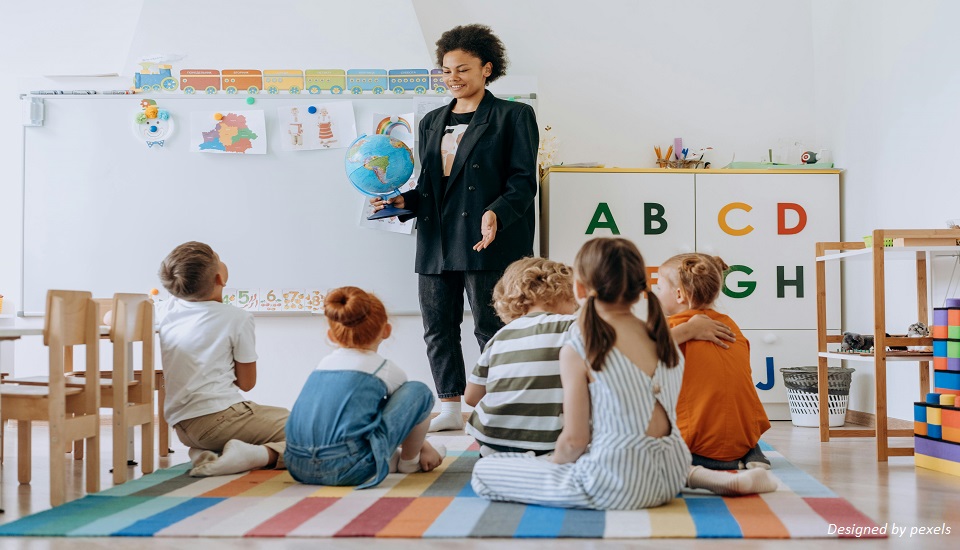
How To Use PBIS Game As A Learning Tool In Your Classroom
8th November 2024
Students can improve their performance over time by learning more about how they could accomplish their goals in subsequent playthroughs of the activity thanks to the feedback they receive during the game. Students improve their resource management and comprehension of how to use them most effectively in each task or difficulty level via trial and error. The main purpose is to effectively accomplish those goals before time runs out or resources are completely depleted. As a teacher who has completed a B.Ed. in Special Education, you sure have a lot on your plate, hence here is a complete research on PBIS that you need to know.
What Is PBIS?
Learning may be aided by Positive Behavioral Interventions and Supports (PBIS) games in several ways. They can be used to teach language arts (reviewing vocabulary terms or recognizing parts of speech), topic knowledge, social and emotional skills, and character education. They can also assist kids study for tests and examinations.
Games can be particularly effective as they incorporate the following learning strategies:
- Interdisciplinary actions
- Integration
- Student collaboration
Teachers may be proactive rather than depending on punishment since the PBIS framework is meant to address problematic student behavior before it occurs. Because of this, PBIS is incredibly effective in helping children and creating a supportive learning environment.
Do you follow us on Social Media? We regularly share upgraded educational content, tips, feedback, and more. Check us out by clicking the profiles here - Facebook / Twitter / LinkedIn / Pinterest / Instagram / YouTube
What Kind Of PBIS Games Can You Use To Support Learning?
Throughout history, games have been utilized in schools to educate and practice abilities. Indeed, games have been utilized as educational instruments for many years, dating back to the time of the ancient Greeks, who used them to instruct and motivate their populace via competitions in the form of games. These days, teachers utilize games to teach a wide range of subjects and abilities, from science and math to literature and history.
School-related online games come in a variety of shapes and sizes. They may consist of:
- Board games
- Card games
- Group projects
- Puzzles
- Role-play scenarios
- Interactive exhibits
Students can benefit from gamification in the classroom in a variety of ways. They may assist kids in honing their social and emotional skills, practicing their curriculum knowledge, and reviewing for exams. They are also capable of teaching language arts and character education.
3 Types Of Games That Work The Best
If you are wondering what types of games to include in your classroom, here are a few to help:
- Content Specific Games
Certain games are made specifically to impart knowledge or certain abilities. These are the games that we often consider to be ‘educational.’ Students can enhance their academic performance by practicing abilities seen on standardized examinations through game-based learning in the classroom.
- Skill-Building Games
Other games have broader objectives, such as encouraging creativity or imparting communication and collaboration skills. These consist of discussion clubs, sports, team contests, and more. Players may hone their talents in a cooperative or competitive setting by playing these games.
- Online Games
Online games may also be included in learning management systems (LMS) or other software programs of a similar nature. By enabling students to communicate with instructors and fellow students through live video chat or virtual worlds such as ‘Second Life,’ they enhance education.
How Games Support PBIS Learning Goals
There are several ways to utilize games as an interesting and instructive tool to help your school achieve its PBIS objectives:
1. Helps Students Practice PBIS Goals
As was already noted, certain games are meant to teach particular abilities, such as communication, teamwork, problem-solving, or conflict resolution. Games give children a low-stakes setting where they may practice PBIS techniques, get feedback, and track their progress. Through cooperative play, games may also offer chances for leadership, teamwork, and social growth.
2. Helps With Classroom Management
By giving instructors and students a simple means of communicating behavioral expectations and giving feedback on how well those expectations were met, games may also aid in general classroom management. Additionally, as was already said, you may build community and improve ties among your pupils by promoting cooperative play.
3. Motivates And Engages Learners
A strong technique for encouraging students to achieve their learning objectives is gaming in the classroom. But it's not always so simple to pick the correct kind of game. Games provide students with a clear objective, which is crucial since it provides them with an instant feeling of direction and purpose.
Games provide opportunities for learners to succeed. Games do more than simply instruct students. In order to boost student engagement and offer them a sense of control over their own success or failure, games also allow students to choose how they want to win or lose. Games provide performance feedback, allowing students to modify their course as necessary.
Bottom Line
Additionally, gamification in the classroom may provide a safe setting for students to develop new abilities. Students who acquire these new abilities will be able to form more positive interpersonal interactions both within and outside of the classroom. As educators who have completed a B.Ed. in Special Education, you are aware that games are one of the few things in the world that promote a feeling of community. Playing games with peers supports and reinforces the values of cooperative play, friendly rivalry, and mutual aid.
We believe education should be accessible for everyone. That’s why we don’t charge for our blogs. Find the right course that will help you in your career with us, contact us at +6621056101. You can mail us at act@asiancollegeofteachers.com
Written By : Park Jin Ae




